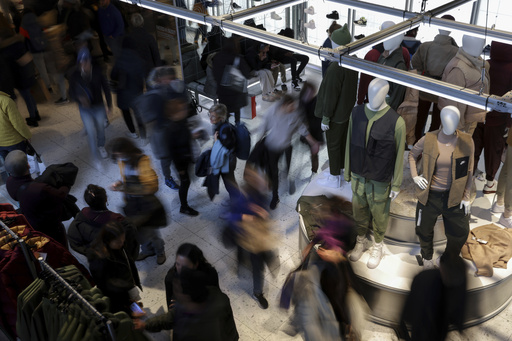NEW YORK — This holiday season, a significant number of consumers are expected to take advantage of ‘buy now, pay later’ (BNPL) plans, which allow shoppers to spread their payments over time. As inflation continues to affect Americans and credit card debt remains at an all-time high, these methods present an appealing option to many.
According to predictions from Adobe Analytics, spending via BNPL is set to increase by 11.4% compared to last year, with consumers projected to make $18.5 billion in purchases using these services from November 1 to December 31. Specifically, it’s estimated that $993 million will be spent on Cyber Monday alone.
The appeal of BNPL predominantly lies in its accessibility to individuals with low credit scores or no credit history, particularly younger consumers. This is because most providers perform only soft credit inquiries and do not report these transactions to credit bureaus like traditional credit card companies do.
Additionally, BNPL users may find themselves in a more secure position if issues arise during their transactions. The Consumer Financial Protection Bureau (CFPB) announced in May that BNPL companies must comply with regulatory requirements similar to those governing traditional credit products, which include the ability to seek refunds and dispute charges.
Typically, to use a BNPL service, consumers register with their bank details or credit and debit cards and agree to repay purchases in monthly installments, often over periods of eight weeks or longer. These services are marketed as having minimal or no interest, with only conditional fees, such as those incurred from late payments. Popular BNPL options include Klarna, Afterpay, and Affirm.
However, consumer advocates caution that utilizing credit cards to make BNPL payments can lead to additional charges. If consumers carry the credit card balance from month to month, they might incur interest fees alongside any late penalties associated with the BNPL service. Experts often discourage combining BNPL services with credit card payments for this reason.
Consumer watchdogs also express concern that these payment models could lead to over-reaching on budgets. By breaking up payments, shoppers may mistakenly feel they have more disposable income for smaller purchases. Additionally, they recommend being vigilant when using multiple BNPL services, as automatic payments can accumulate quickly without any central tracking, unlike traditional credit card statements.
“Buy now, pay later can serve as an inventive solution for anticipated purchases,” remarked Mark Elliott, chief customer officer at LendingClub. “However, it can also promote excessive spending.”
This phenomenon is attractive to retailers, as merchants frequently observe larger cart sizes and higher conversion rates when BNPL options are available. Research from the Federal Reserve Bank of New York indicated that consumer spending could rise by 20% when BNPL is offered.
“The current economic climate and inflation have led more individuals to depend on revolving credit,” Elliott noted. “While people may not perceive BNPL as debt, it fundamentally acts as such.”
When consumers neglect to make payments, they may encounter additional fees, interest charges, or even restrictions on their ability to use these services in the future.
Emily Childers, a consumer finance expert at Credit Karma, pointed out that recent data reflects a troubling trend, showing that credit card balances for Gen Z and millennial members have surged over 50% since March 2022, coinciding with the Fed’s interest rate hikes.
“Younger individuals are approaching this holiday season already in financial distress,” she stated. “Our data suggests they are continuing to ignore the problem and are still spending.”


